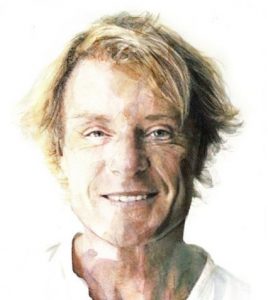Virtual currency
 by Jacob Gelt Dekker
by Jacob Gelt Dekker
In December 2017, Nicolas Maduro, President of Venezuela, announced a new currency. This time not in thick wads of paper bills but virtual. Venezuela will have no cash any longer but only virtual currency said the President.
That sounded like good news for the poor Venezuelans who now need a carriage along to bring piles of bills to the simplest transaction. It would also lock the shadow economy, cash transactions out; virtual transactions are much easier to detect, trace and tax. It would be a great idea for Curacao to get their shadow economy under control, and the drug dealers with cash out of the game.
The second part of Maduro’s plan was rubbish; he wanted to base the value of his new virtual currency on oil reserves, still in the ground, gold, and diamonds. That sounded totally like the old gold standard for currency.
It has taken the world and its economists hundreds of years to understand that currency to be used instead of barter trade, can only have goods-and-services as a counter value, not minable assets, like gold or oil.
There are many examples in history the world over, that proves that point. For our Venezuelan friend, the colonial Spanish economies, with its Viceroyalties, are probably the best example. Spain raked in shiploads of gold from Inca, Maya, and Aztec, from the Peruvian, Mexican, and New Spain Viceroyalties. Once the gold got to Spain, it was melted down and coined into currency. Unfortunately for Spain, more currency did not mean more productivity, it only meant that all goods and services became more expensive. So, from 1500 till 1650, Spain faced superinflation of 300-400%. It drove the mighty Empire into bankruptcy and the Spanish Kings went bankrupt over and over. Minting coins, copper, nickel, silver or gold, printing paper money or issuing virtual currency does not increase wealth.
The only thing that does, is increasing productivity.
Venezuela’s economy is in dire straits since it cannot pump enough oil to pay its foreign bills. The oil price at, US $60 per barrel is not even 50% of its peak of US $135; the budget cannot be met and has heavy shortfalls.
The technology of Venezuelan oil installations is worn out and often beyond repair, and trained personnel left the country a long time ago. So, the chances to pump more oil are zero. In spite of increased revenue per barrel, the total oil income in Venezuela has decreased again.
Venezuelans have long stopped being productive with industry and agriculture, since importing good was a lot easier, as they were told by the Chavez junta. Now 70% of the nation’s consumption has to come from abroad, has to be imported, and that is not sustainable with the present income. No matter whether the Treasury issues paper money, coins or virtual currency, it does not increase productivity.
Castro-Chavistas only talk about consumption and never about production. That is the true malady of socialism and communism that caused these political ideologies to go under during the last century.
Virtual currency or not, it will not bring anything to increase wealth for the hungry citizens. Only going back to work will.
























